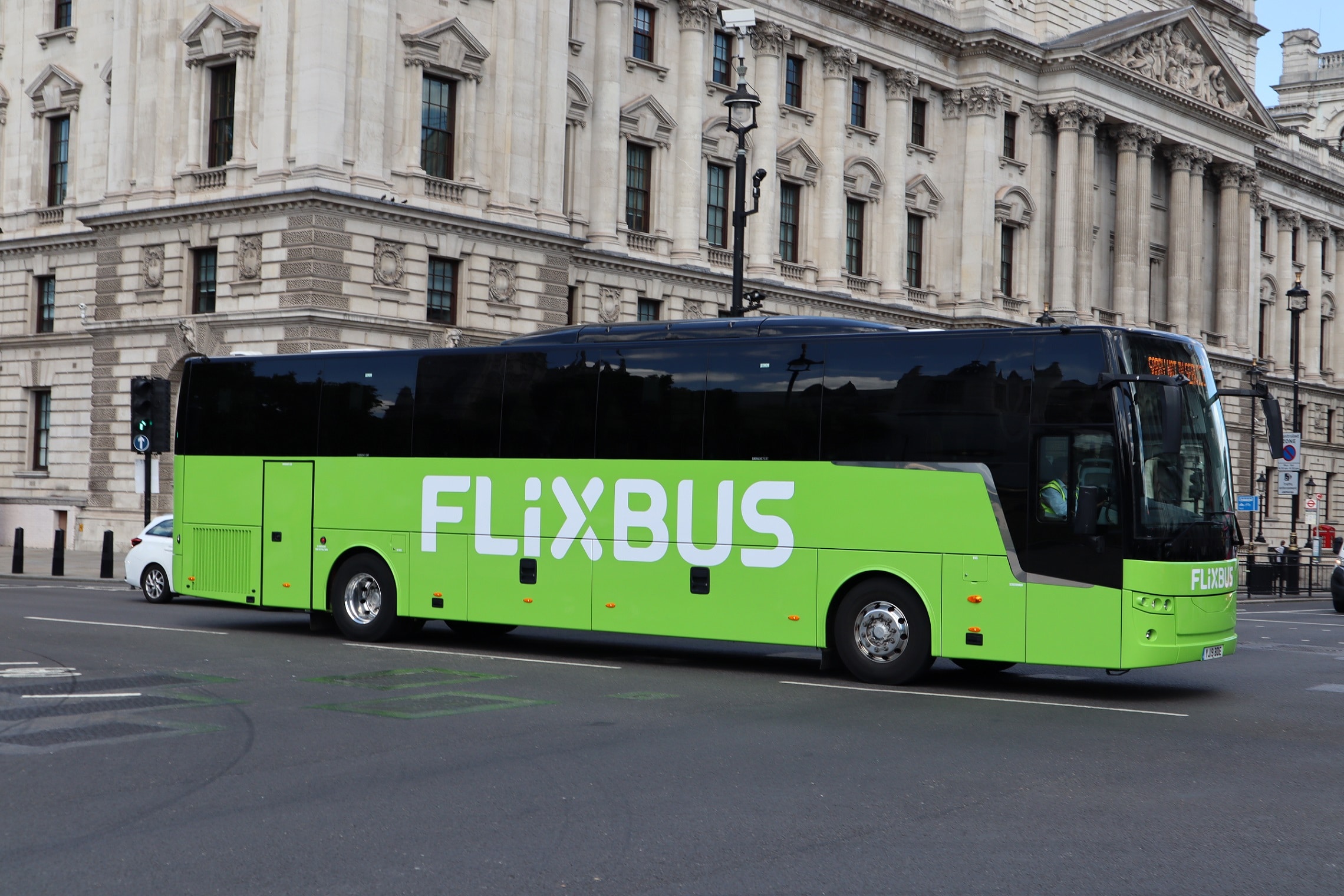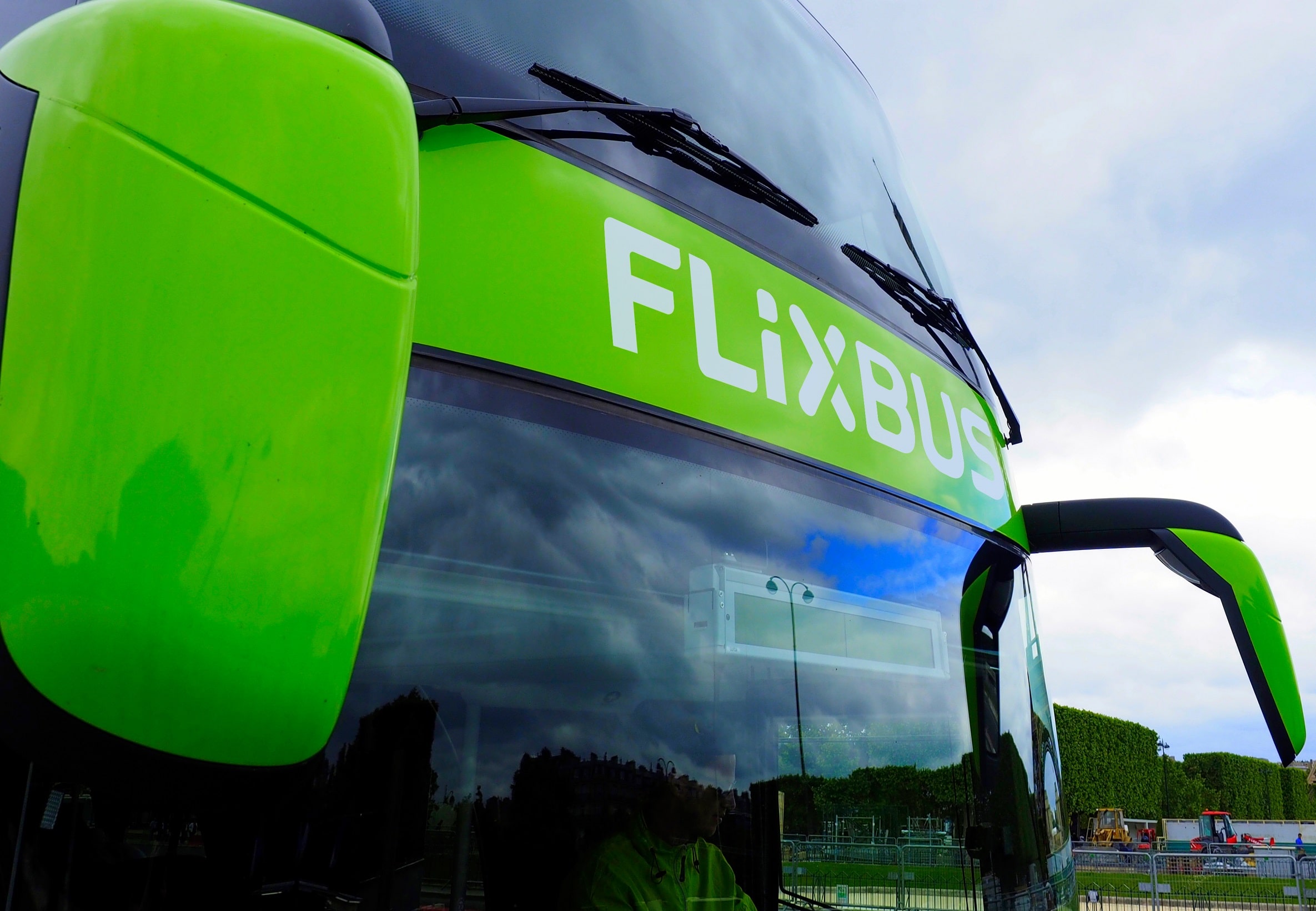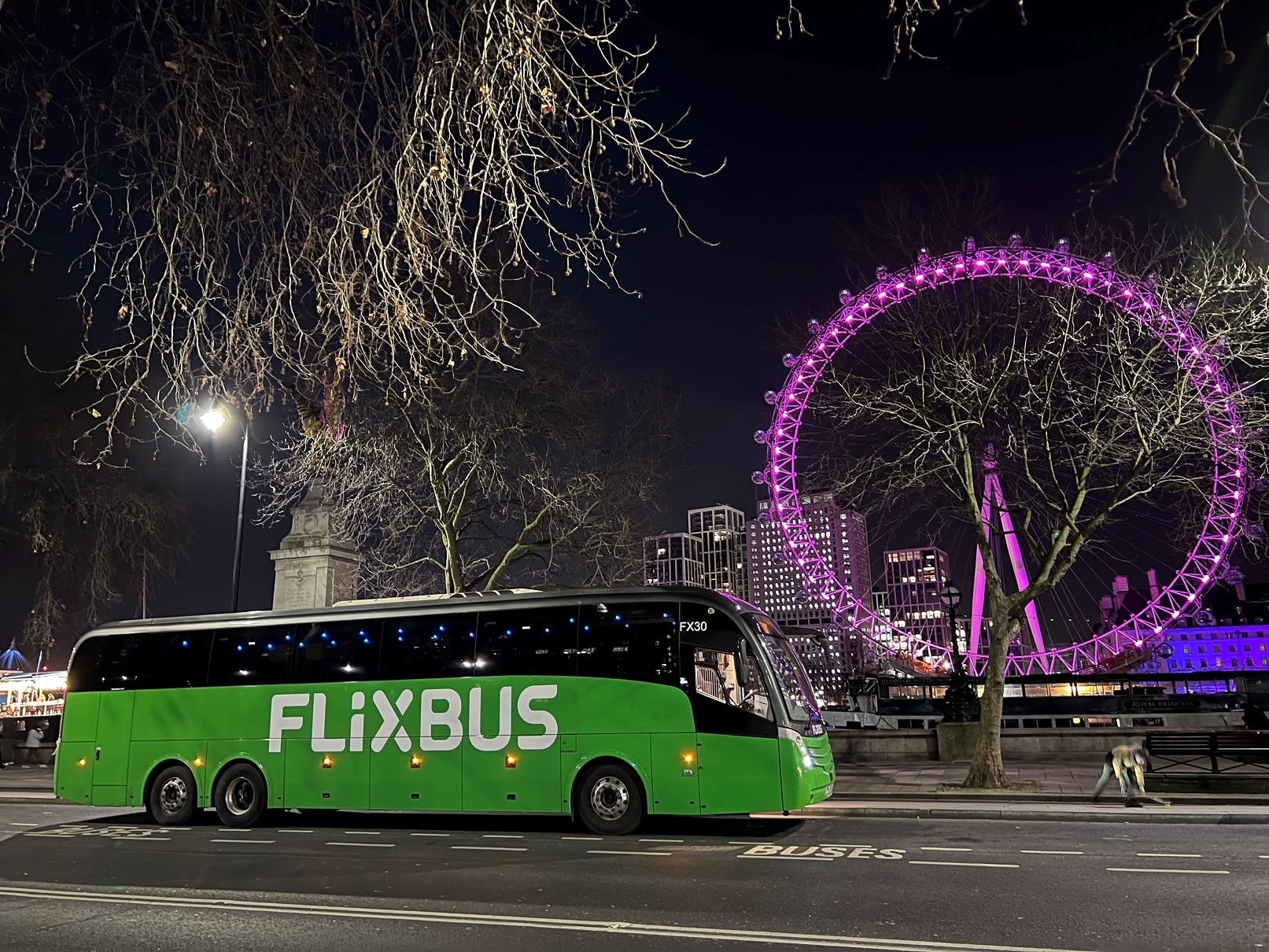FlixBus recently further expanded its presence in the UK with an additional Anglo-Scottish service and a new routes to South West England and Yorkshire, the latter representing engagement with three additional operator partners. Last year the business laid down its plans for the UK, and its quest to operate the country’s largest such network by 2025 is on track, says FlixBus UK Managing Director Andreas Schörling.
In fact, progress here has been made faster than anticipated. While further plans are under wraps, passenger loadings have increased strongly since concern around the Omicron variant receded. Like one of its competitors, FlixBus UK saw a surge in demand around Easter and experience from more mature markets translates that into optimism for the longer-term, Andreas explains.
“Typically, Easter is a good indicator of the summer season. We saw numbers that were off the chart. That leaves me very confident and keen to double down on our growth plans,” he comments.
A good level of repeat business, and from customers who are new to coach travel, is also a source of positivity.
Easter peak suggests strong summer, says FlixBus UK
As a tech-based company, FlixBus is skilled in using data to make projections. “At Easter we saw a massive record in terms of passenger numbers in the UK,” Andreas observes. “What we have witnessed with each peak – such as school holidays and bank holidays – is that revenue grows to a new level and then stabilises there.

“Growth has been stronger than we projected and hoped for. That leaves us optimistic about the commitment we made initially about our plan to become market leader.”
A rise in load factors is having a similar effect on fares via the dynamic pricing model. For operators working with FlixBus UK, the latter is an important consideration.
Its model works on a mutual rewards basis. “We are ensuring that these increases are shared with our partners,” he continues.
A major development in the latter part of 2021 for FlixBus parent Flix was the purchase of the Greyhound business in the US from FirstGroup. Flix has used acquisition as a means of expansion elsewhere and it ties with an aim of becoming market leader in each territory it serves.
Those purchases provide experience of businesses integration and from a financial perspective that could be useful in other markets, Andreas continues. Expansion in the UK via acquisition “is definitely a capability that we have,” he notes. “We are always evaluating opportunities.”
FlixBus UK backs support on diesel prices
While FlixBus UK continues to see passenger numbers rise, a shadow is cast by the current diesel price crisis. Scheduled work is more intensive than many other coaching avenues and increases in fuel costs hit hard.
In March, FlixBus UK added its weight to calls made by trade body RHA for a 15ppl essential user rebate for the coach industry. That course of action has not been adopted by ministers, but Andreas notes that support remains needed. He adds that fuel prices “are at the top of the mind” of FlixBus UK.
While he does not disclose the precise measures that the business has taken to support its operator partners through the current period of high diesel costs, Andreas says that FlixBus UK has “a continuous and ongoing conversation… in terms of the current state of the market and is adjusting and supporting to make sure that we have a sustainable structure.”

Such an approach will, he hopes, attract further operator partners as FlixBus UK continues to grow its network.
However, with the peak season here and some operators seeing high demand through existing workstreams and difficulty in recruiting drivers, adding further pressure to that may not appeal to some within the industry.
Andreas acknowledges that the sector is recovering, something he says that FlixBus welcomes. “Operators being busier is a good thing. We are here for the long term, and we are happy to be patient and wait until those that are interested can join us. But at the same time, I believe that the proposition we have is strong. It is contracted, multi-year work.”
Double-deckers in the future?
Where volumes continue to increase, FlixBus will add more departures. An alternative is utilisation of double-decker coaches. It does that successfully in other markets. While Andreas does not rule it out double-deckers the UK, he is cautious around the potential for them here.
“We have vast amounts of internal data from different countries that allows us to see when double-deckers make sense and when they don’t,” he explains. “We use that knowledge when planning networks.” Seasonality is a consideration, he adds. “If it makes sense, we will run double-deckers.”
That development may be one for the future. But FlixBus is certain that if the wider scheduled coach industry continues to deliver the service that customers want, it has a prosperous future in the UK.
Engagement to highlight its benefits – including environmental positives – must continue, Andreas believes. In 2021, FlixBus committed to placing a hydrogen fuel cell-electric coach into passenger-carrying service by 2024 through work with Freudenberg Fuel Cell e-Power Systems and ZF. That date still stands, and when sustainability initiatives are combined with a ‘digital first’ approach and strong messaging, there is every reason to be optimistic across the board.











